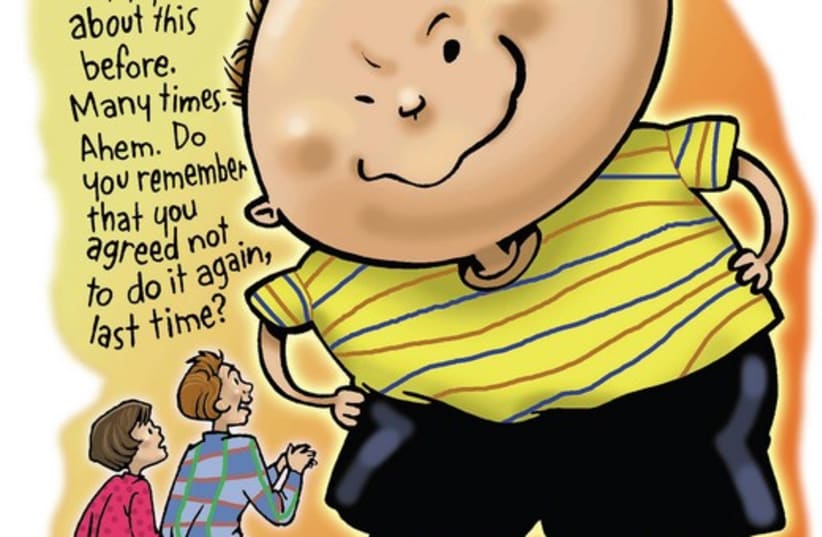Parents often come into my private practice asking for help on how to manage and communicate with their children. While there are thousands of books out there and many philosophies about parenting, there is some collective wisdom from the child development field on the best ways to communicate with your children to maximize a positive result.Connect before you express Parent-child communication is more effective when a parent tries first to get the child to make eye contact. So the first thing is for the parent to ask the child to look at him or her in the eyes, then say what he or she has to say. Eye contact is the critical factor.Don’t use physical punishment The parent who regularly resorts to physical punishment can be guaranteed of one thing: raising a child who will most likely use the same approach with others, be it siblings or peers or even toward the parents. Invariably, the child who is hit regularly by a parent will suffer from low self-esteem that literally can last a lifetime. Instead, teach children what they did wrong by talking to them. From the time they are young, make sure they understand the rules and repeat them regularly and explain why they are important to you.Be aware of your tone of voiceIt’s not usually what people say but how they say it that makes the difference in being heard correctly. Like adults, children are more likely to be attentive if spoken to in a respectful way. Don’t take your kids’ sensitivities to your verbal delivery for granted.Don’t embarrass your children In the heat of the moment, all parents have been guilty of calling their kids out in front of relatives and friends or using name-calling or even cursing designed to sting and get the child’s attention. The result can be resentment and embarrassment.This is especially true for a teenager who may feel downright humiliated when an angry parent calls him or her out in front of friends. It is always a good idea to pull the child aside, go to a private space away from others and then say what you want to say.Keep it simple and clear Whenever possible, don’t beat around the bush when you have something important to convey to your child. Be clear and concise.Both younger children and teenagers appreciate their parents being frank and asking direct questions such as “where are you going?” and agreeing on a time to be home.Ask the child to repeat back what you stated Too often, parent-child disputes occur because of misunderstandings.“Oh, I thought you said I can come home at 11 p.m.” A simple good rule in communicating is to say what you have to say and then immediately ask your child to repeat back what they heard you say to be sure you were heard correctly.Begin your directives with “I want.”Instead of “Get down,” say “I want you to get down.” Instead of “Let Rivka have a turn,” say “I want you to let Rivka have a turn now.” This works well with children who want to please but don’t like being ordered around. By saying “I want,” you give a reason for compliance rather than just an order.“When... then.”“When you get your teeth brushed, then we’ll begin the story.” “When your homework is finished, then you can watch TV.” “When,” which implies that you expect obedience, works better than using “if,” which suggests that the child has a choice when you don’t mean to give him one.
Give choices As a general rule, everyone likes some control, even your kids. So give choices whenever possible, such as “Do you want to put your pajamas on or brush your teeth first?” Write down reminders Children, especially pre-teens and teenagers, don’t like to be constantly reminded. They feel like they are being nagged. Instead, parents can leave humorous notes such as “Don’t forget to put the dishes in the dishwasher, we have the prime minister coming over this evening.” This can put a little humorous spin in parental directives.Talk the child down The louder your child yells, the softer you should respond. Allow your child to let off steam while you interject timely comments: “I understand” or “Can I help?” Sometimes just having a caring listener available will wind down the tantrum. If you come in at his level, you have two tantrums to deal with. Be the adult for him.Give advance notice“We are leaving soon. Time to put your toys away and put your jacket on.”Let your child know that you are interested in his day One of the ways a parent can show a child that he really cares is to ask, “How was your day?” You’d be surprised about how much good communication can come out of a conversation after asking this question. Too often, busy parents, struggling with their own stress, overlook the mood status of their children.Kids are never too old to be reminded that their parents love them and are proud of their accomplishments.The writer is a marital, child and adult psychotherapist practicing in Jerusalem, Tel Aviv and Ra’anana. drmikegropper@gmail.com
